Stay updated with the latest news, exclusive insights, and more.
.png)
Redcliff Inc. has achieved Japan's largest drone show, featuring 2,200 drones. We spoke with CEO Komei Sasaki about his journey from a round-the-world backpacking experience to discovering drone technology and eventually founding his company. He shared insights on the current state of the drone show business, future prospects, and challenges with Japan's drone regulations.
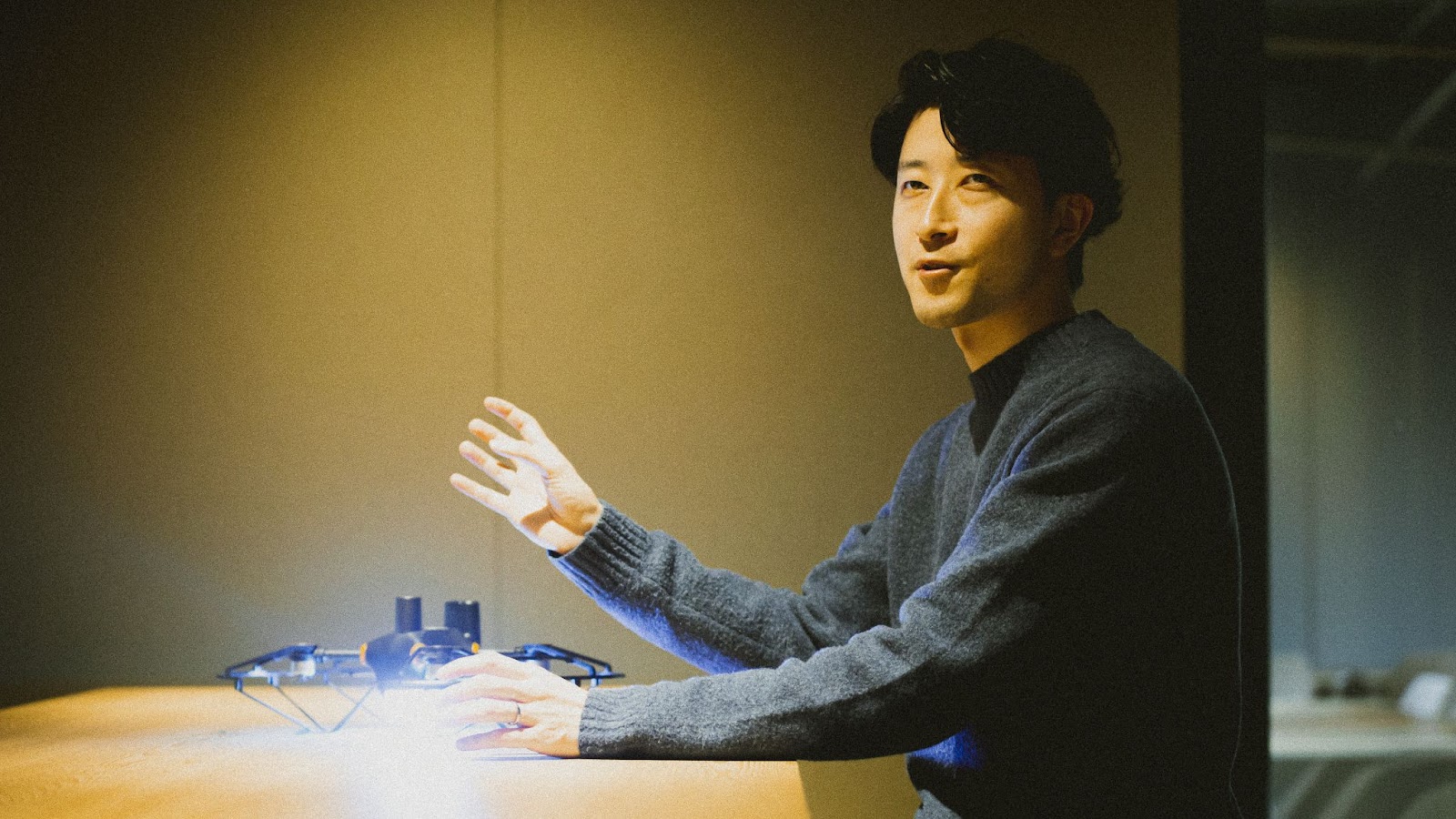
Could you tell us about yourself and your background?
I'm originally from Akita Prefecture and studied at the Faculty of Architecture and Building Environment at a university in Yokohama. During university, I took a two-year leave of absence to travel around the world twice. The first time I traveled as a solo backpacker, and the second time I experienced a group world tour on a large cruise ship with about 1,000 people.
During my backpacking days, I wanted to make my journey unique, so I decided to take a drone on my round-the-world trip, as drones were just beginning to become popular at that time. There weren't many drone regulations then, and I could enjoy aerial photography freely around the world.
After my 18-month world tour, I used my remaining leave time to work as an opening staff member at DJI's first store in Japan. DJI is the world's largest drone manufacturer. There, I witnessed various possibilities for drones in agriculture, logistics, surveying, and lifesaving, which made me feel their potential. I eventually dropped out of university and worked as a full-time employee for two years, gaining experience in sales, aerial photography, and as an instructor.
I was particularly drawn to aerial photography and established Redcliff Inc. in 2019, working on aerial shoots for television, films, and music videos. Later, I was asked to film a large-scale drone show, and I was amazed by the technology and its potential.
After a business trip abroad where I realized the commercial value of drone shows, I raised funds and started the drone show business in 2021. We initially started with 300 drones and now have over 3,000. Recently, at the DIG SHIBUYA event, we realized Japan's largest drone show with 2,200 drones.
The drone show at DIG SHIBUYA seems to have been impressive and exciting. Was the preparation challenging?
Conducting a drone show in Shibuya, especially at such a large scale in Japan, was a memorable event for our company. Coordination took time because the park venue was under Tokyo Metropolitan Government jurisdiction rather than Shibuya Ward. Also, the location was decided around December, and we needed to adjust the animation production size according to the area, so preparations were rushed.
「DIG SHIBUYA DG DRONE SHOW」オフィシャルムービー【ダイジェストバージョン】
MEMORABLE PERFORMANCES
What has been your most memorable drone show so far?
That's a difficult question. The very first drone show remains particularly memorable. It took nearly six months to adapt foreign-made drones to Japanese specifications because aviation and radio laws differ between Japan and other countries. Additionally, Japan's aviation laws are constantly changing, and currently, each drone needs to be registered, which incurs costs. For our company, with thousands of drones, compliance with regulations is a significant challenge.
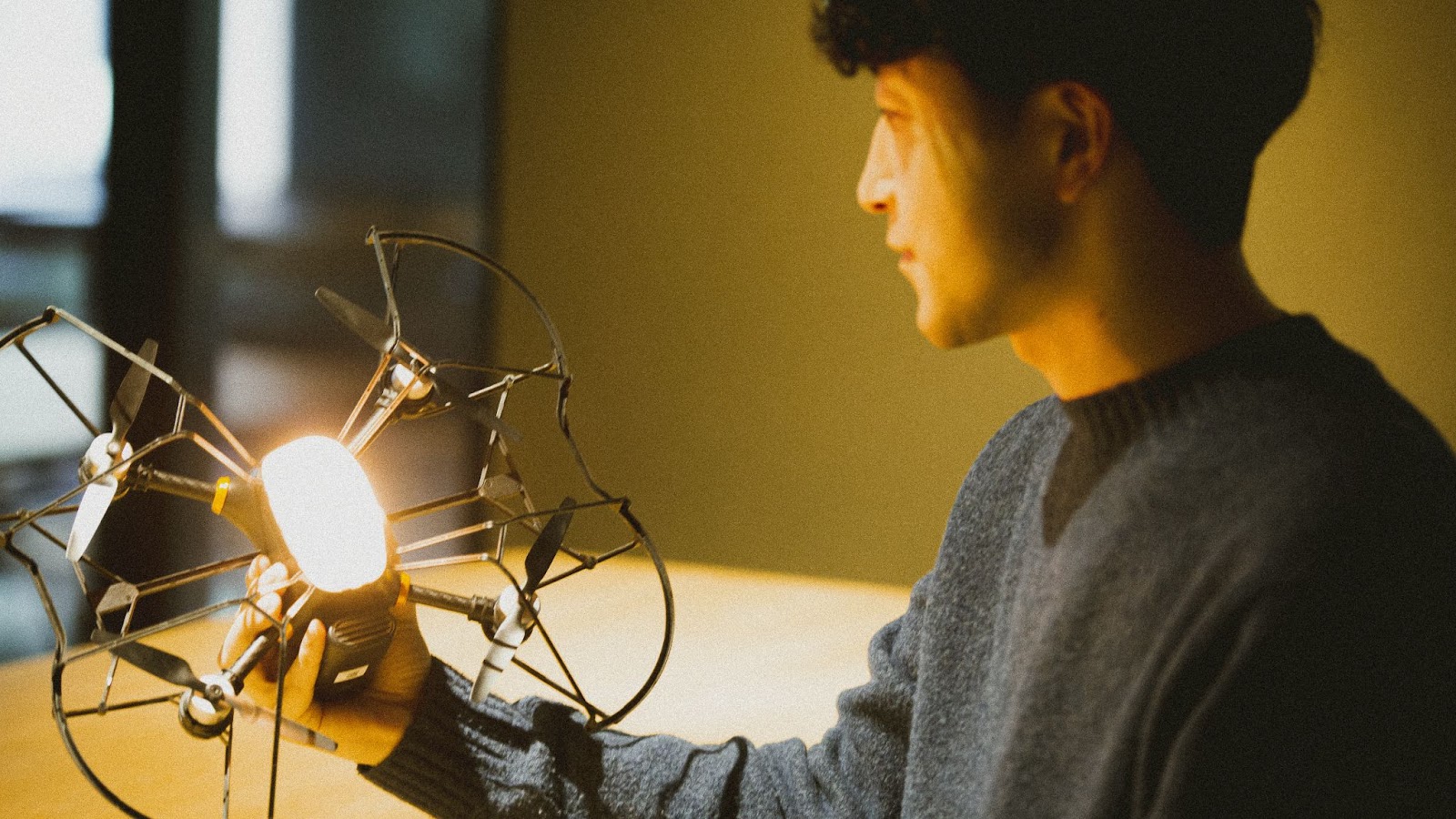
Are Japan's drone regulations lagging behind the rest of the world?
Yes, frequency bands that have been approved overseas are still unavailable in Japan. For example, the same drone can be operated up to about 10km overseas, but the Japanese version can only fly half that distance. Also, when new products are released overseas, they're often delayed in Japan or sometimes not sold at all.
In my personal view, Japan is too cautious about risks. Experimental initiatives are advancing overseas, but in Japan, even small risks can make it difficult to get approval. Overly strict regulations may hinder business and infrastructure development.
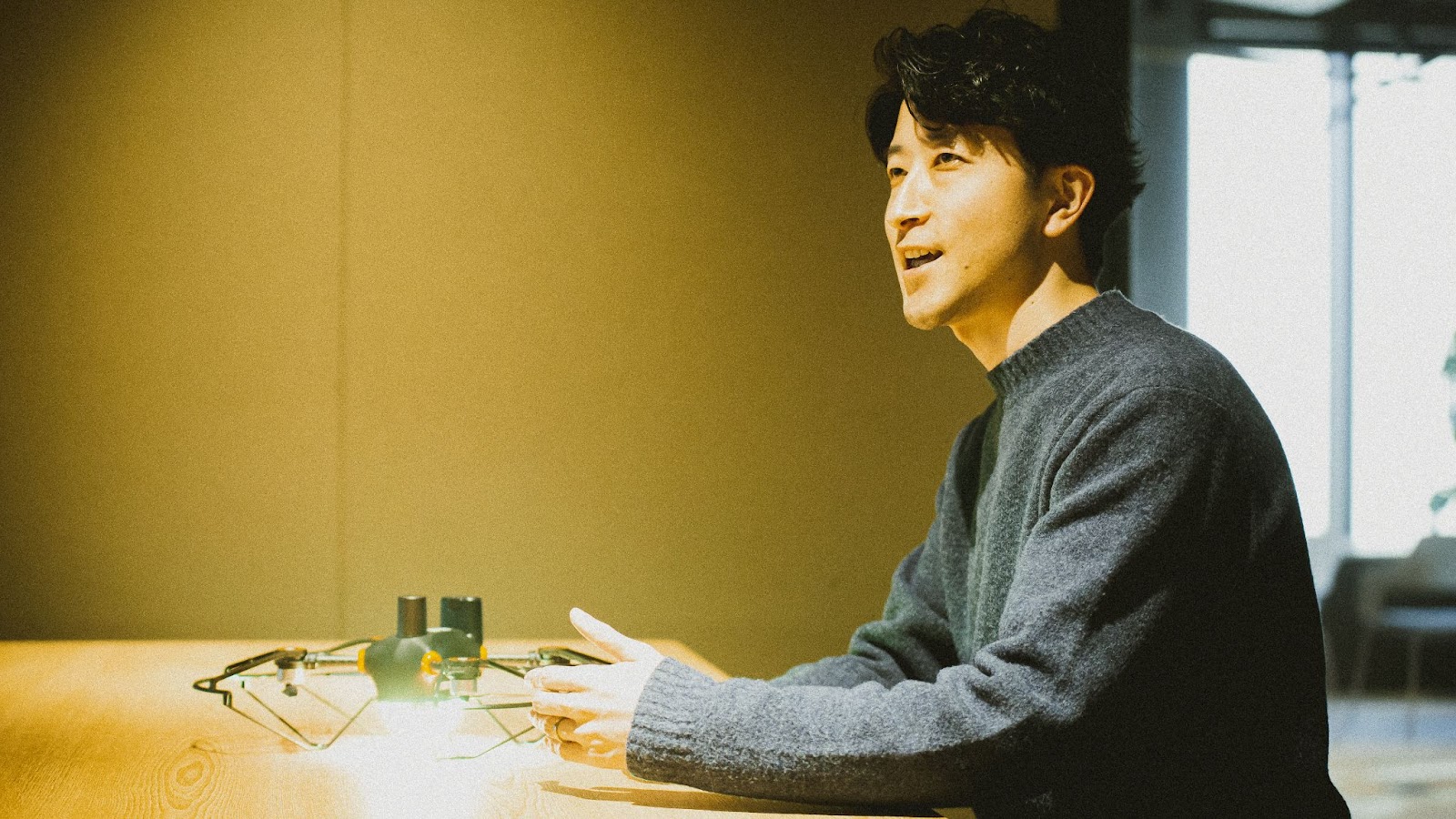
Other countries are advancing with drone deliveries and flying cars. What's the situation in Japan?
Initiatives have begun in some areas like Aichi Prefecture, but regulations seem to be hindering progress. Regulatory relaxation cooperation is essential for developing new services, and the current situation makes business expansion difficult. For the recent DIG SHIBUYA event, having access to a good park was a significant factor.
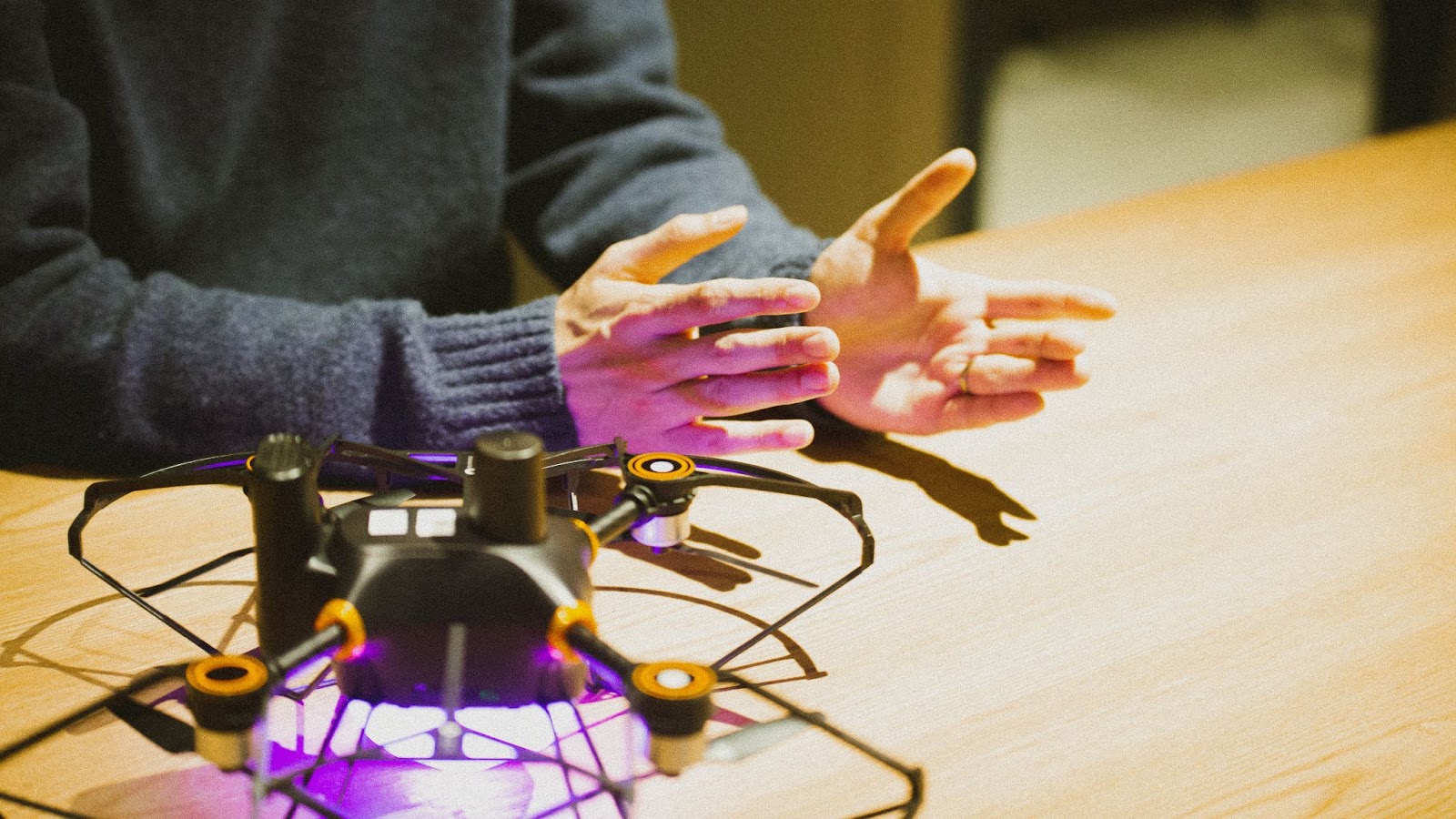
Could you tell us about the radio waves used in drone shows?
Drones used in drone shows use the same frequency bands as regular aerial photography drones. We basically control them through communication between the controller and the drone. Recently, there's been a move toward using mobile networks and satellite communications, but currently, we're communicating on the 2.4GHz band.
Overseas, the use of the 5GHz band is permitted, allowing both 2.4GHz and 5GHz to be used, similar to Wi-Fi. Drones basically use the 5GHz band, but in Japan, outdoor use of the 5GHz band is restricted, so we have to use the 2.4GHz band.
Would the situation change if radio frequencies were opened up?
Yes, since the same devices are currently limited in performance due to radio regulations, I believe there would be significant changes if radio frequencies were opened up.

Could you share Redcliff's future prospects and vision?
Currently, we're conducting drone shows and programming education domestically, but we're considering international expansion in the future. In the medium to long term, we aim to position ourselves not just as a drone show operator but as a company managing aerial advertising media. For example, we plan to secure airspace in advance for places like fireworks festivals that attract hundreds of thousands of people and develop promotional advertisements there. Just as TV advertising costs vary by time slot, we're designing a system where advertising costs would be set based on which fireworks festival or event the drone show is performed at.
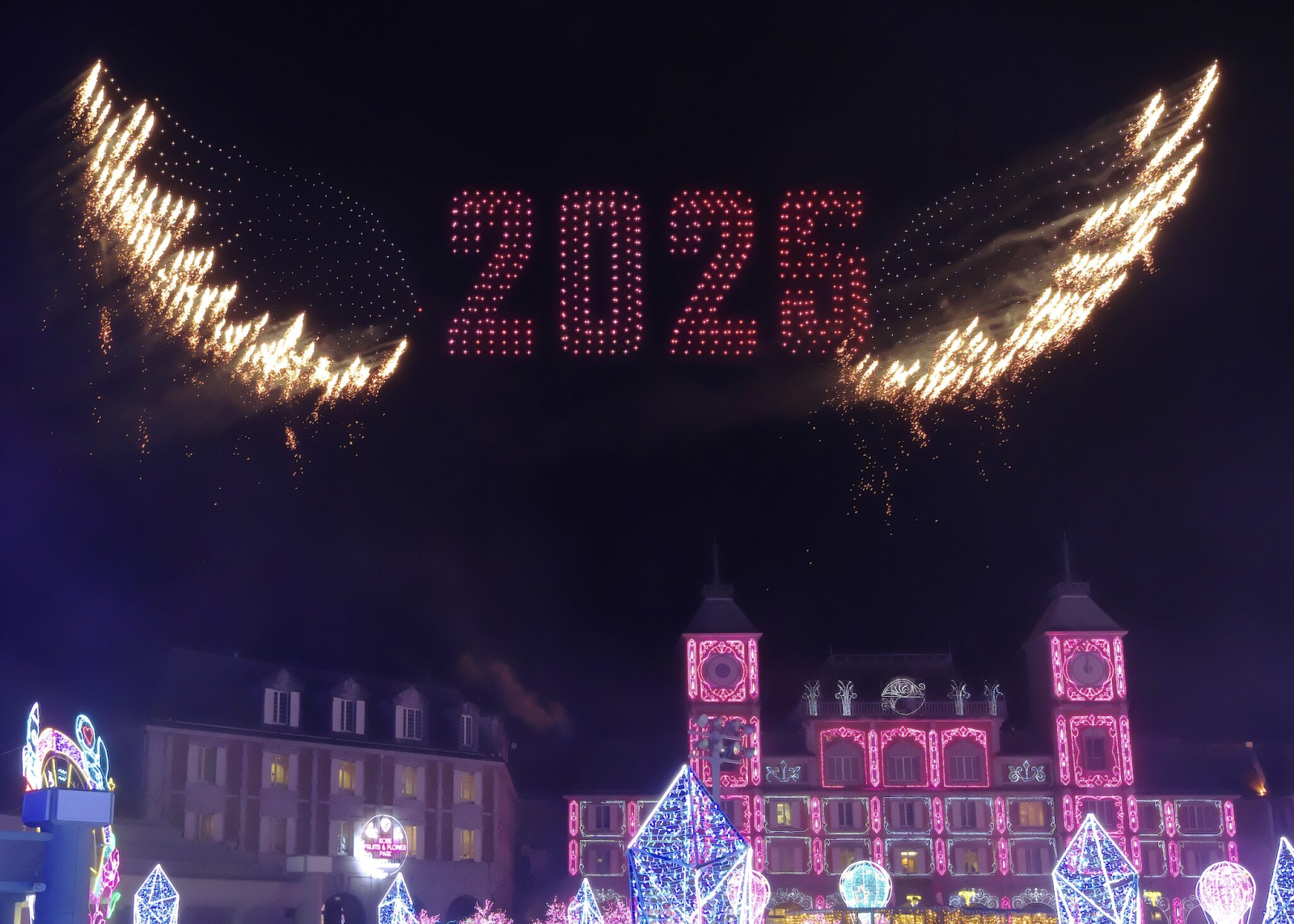
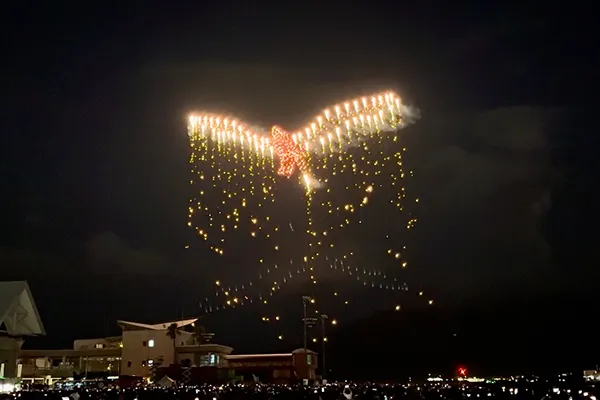
Drone shows seem to be gaining attention as an alternative to fireworks. What's your company's perspective on this?
Globally, drone shows are called "next-generation fireworks," but our company aims for coexistence and development with fireworks festivals. Fireworks are an important traditional culture in Japan, deeply rooted in Japanese hearts. Fireworks festivals attract hundreds of thousands of people, which is a significant appeal.
However, fireworks festivals have been facing various challenges in recent years. In addition to the impact of the COVID-19 pandemic, the number of festivals has been declining due to factors such as rising prices, shortage of pyrotechnicians, noise issues, and environmental concerns about burnt residue. Furthermore, difficulty in gathering sponsorship funds is a major challenge.
Therefore, we want to create new value by combining fireworks festivals with drone shows. By displaying corporate logos in the air with drone shows, we can provide new sponsorship menus and increase appeal to younger generations. In areas where fireworks festivals cannot be held due to noise or residue issues, we propose drone shows as standalone events. We can feature local mascots or display messages that showcase the region's attractions.
In this way, we aim to provide more sustainable entertainment through the fusion of new technology while preserving the value of traditional fireworks festivals. We want to achieve development in a manner suited to the times, leveraging the characteristics of both fireworks and drone shows.

Why did Redcliff choose Tokyo as its headquarters?
Tokyo is home to many companies, including investment firms, VCs, event companies, advertising production companies, and agencies. We believed that having our base in Tokyo would facilitate collaboration with these companies.
You seem to have participated in many startup support programs. Was support from regional accelerator programs effective?
Yes, it was very effective. Many programs are offered free of charge, providing opportunities to connect with large corporations and receive mentoring from VCs and corporate representatives. We also establish horizontal connections with startups in the same phase, allowing us to see each other's growth and identify potential areas for collaboration.
Each program has its own characteristics. For example, some offer opportunities for collaboration with Shibuya Ward or pitch contests that provide venues to meet investors. Tokyo has active acceleration activities.
Our current headquarters office is in a facility operated by a VC, where invested startups are tenants, allowing for easy consultation on fundraising. Events matching VCs, startups, and large companies are also held, making it a very good environment.

Based on your experiences traveling the world as a backpacker and on cruise ships, could you share the values, policies, and personality traits you cherish?
In running a startup, establishing a differentiation strategy and competitive advantage is extremely important. Without these, fundraising becomes difficult, and the company lacks appeal. To achieve this, it's essential to actively take on challenges that other companies cannot.
From my experiences traveling the world and encountering various cultures and ways of thinking, I've come to believe that "things anyone can do" rarely generate significant value. Therefore, our company constantly keeps its antenna up, pursuing initiatives that competitors cannot imitate.
For example, we're expanding the number of our drones at a pace that far exceeds other companies. Beyond the mainstream LED drone shows, we're also developing new expression methods such as drones carrying fireworks, laser effects, and smoke effects. While other companies are still only doing LED shows, we're creating new performance methods one after another to enhance our uniqueness.
I'm confident that continuously pursuing this strength of "what others cannot do" will lead to more designated projects for our company in the future. Therefore, we always prioritize challenging new things and providing value unique to our company.
This is rooted in what I learned while traveling the world: "breaking free from existing frameworks and pioneering your own path." The various cultures and values I encountered during my travels have become the driving force behind the pursuit of uniqueness in our current business development.

Do you have any advice for those aspiring to start a business?
Rather than aiming for a perfectly completed product, I recommend getting to market early, even at an intermediate stage, and starting fundraising. By actually getting things moving, you might discover unexpected demand or, conversely, find out there's no demand. Since fundraising also takes time, it's better to start early rather than aim for perfection, repeatedly explaining to investors and updating as you go along. This way, you can get ahead of the competition.

What was impressive throughout the interview was Mr. Sasaki's attitude of "challenging what other companies cannot do." Not just conducting drone shows, but constantly aiming to create new value, such as coexistence with fireworks and developing new performance methods.
His observations about Japan's strict regulations were also interesting. The current situation where overly cautious regulations become barriers to technological innovation and business development seems to symbolize challenges faced not only by the drone industry but by Japanese startups as a whole. How drone shows will develop as aerial advertising media, and how Japan's regulatory environment will change, Redcliff's challenge is worth noting in predicting the future of Japan's startup ecosystem.